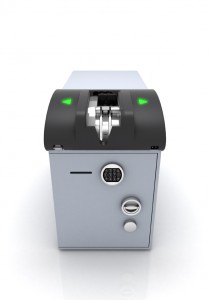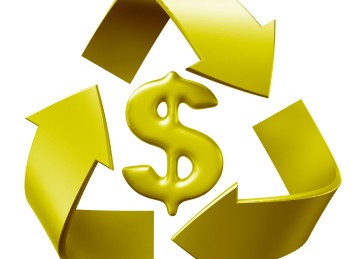Will Retail Cash Recycling Result in a Lower Quality of Cash?
Many of the manufacturers of retail cash SmartSafes are starting to talk about the viability of SmartSafe recycling devices. It is widely accepted that retail SmartSafes are the next big trend in retail cash management. However the more I think about these applications, the more I see a looming problem. Will retail cash recycling result in a lower quality of cash?
 If banknotes is recycled at the retail level and moved from SmartSafe to in-store ATM’s and cashier drawers, how will banknotes be cleaned? I believe it is already true that the SmartSafes deployed by CIT’s and Banks have resulted in less fitness processing. Certainly central banks care about the quality of cash in circulation, as do most people. No one wants banknotes in their purses and wallets that is dirty, torn or otherwise less than “fit”. However, with the growing popularity of cash forecasting and inventory optimization software, retail and central bank inventories are being reduced to their lowest possible threshold.
If banknotes is recycled at the retail level and moved from SmartSafe to in-store ATM’s and cashier drawers, how will banknotes be cleaned? I believe it is already true that the SmartSafes deployed by CIT’s and Banks have resulted in less fitness processing. Certainly central banks care about the quality of cash in circulation, as do most people. No one wants banknotes in their purses and wallets that is dirty, torn or otherwise less than “fit”. However, with the growing popularity of cash forecasting and inventory optimization software, retail and central bank inventories are being reduced to their lowest possible threshold.
When a retail bank or CIT pulls vaulted cash to supply retail cash orders and there is not enough fit cash to satisfy demand, it is a common practice to make up the shortfall with lower quality unfit banknotes. If circulated notes do not find their way to cash processing operations as frequently as they have in the past, how will lower quality banknotes be culled from circulation? Is it realistic for manufacturers to incorporate retail fitness sorting into Smartsafe recycling machines? Will this cause machines to be overly expensive? Will they become too large to fit in the small footprint desired by most retailers? Lastly, does anyone in the banknote handling industry even care?
It seems to me that central banks need to investigate the impacts of Smartsafe recycling before the technology catches on – and catch on it will – in my humble opinion. Perhaps it would be wise for manufacturers, CIT’s and Banks to come together to debate this potential problem. I feel that without industry debate the eventual result will be reactionary central bank retail recycling policy that will result in unnecessary cost and equipment retrofitting and/or replacement.
What do you think?










